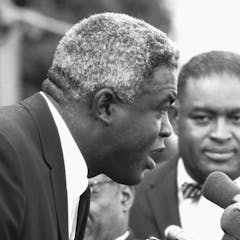
Articles on Protest
Displaying 61 - 80 of 440 articles

Protest is a way to keep potential abuses of the rule of law in check. But what happens if citizens and authorities feel protesters go too far in violating the rule of law?

A legal expert explains how climate activists could use the government’s own legislation to their advantage.

France’s ‘renewed partnership’ with Algeria may be less about exploring a difficult and painful past and more about pressing political concerns.

Iranian women have a long history of campaigning for their rights. The latest protests bring together a host of religious and gender groups suppressed by the country’s clerical regime.

When we look at certain prices, we jump to conclusions about inflation rates that are not accurate.

Women have long demanded change in Iran. In the aftermath of the death of a woman for a hijab violation, women protesters may be leading their country to a freer and more just society.

It’s understandable some people wish to publicly grieve the Queen and offer their respects to her and the monarchy. But those who disagree with the monarchy also have a right to freedom of speech.

Police may not have been justified in making arrests over breach of the peace and public order.

His songs about the rights of the Oromo people in Ethiopia lifted the spirits of a downtrodden people and his death shook the nation.

Pakistan’s coalition government had been relatively permissive of former prime minister Khan’s mass rallies. But the latest developments suggest this approach has ended.

Barbara Kruger’s ‘Untitled (Your body is a battleground)’ has seamlessly transitioned to social media, inspiring a new generation of media-savvy artists and activists.

In today’s episode, we look at how sound and noise are used as tactics of protest and how practitioners are using environmental soundscapes to protest against racism and police brutality.

In Russia, a draconian censorship regime makes open dissent impossible. But people are finding ingenious ways to express their opposition to the war in Ukraine.

Direct action can make the demands of a mainstream movement seem reasonable.

A Supreme Court scholar explains the significance of the recent Supreme Court leaked draft opinion.

To prevent a shortage of health workers, public expressions of appreciation need to be backed by policies that provide dignity, decent working conditions, accountability and appropriate remuneration.

The controversial bill hands greater powers to police over protest and assembly. An expert explains what this means for would-be protesters.

Years before Colin Kaepernick was born, Robinson wrote, ‘I cannot stand and sing the anthem. I cannot salute the flag; I know that I am a Black man in a white world.’

Wheat and bread play a central role for food security and political stability in Sudan.

Farmers from the Groundswell movement want more concessions from the government but the environmental and economic cost might be more than New Zealand can afford.
